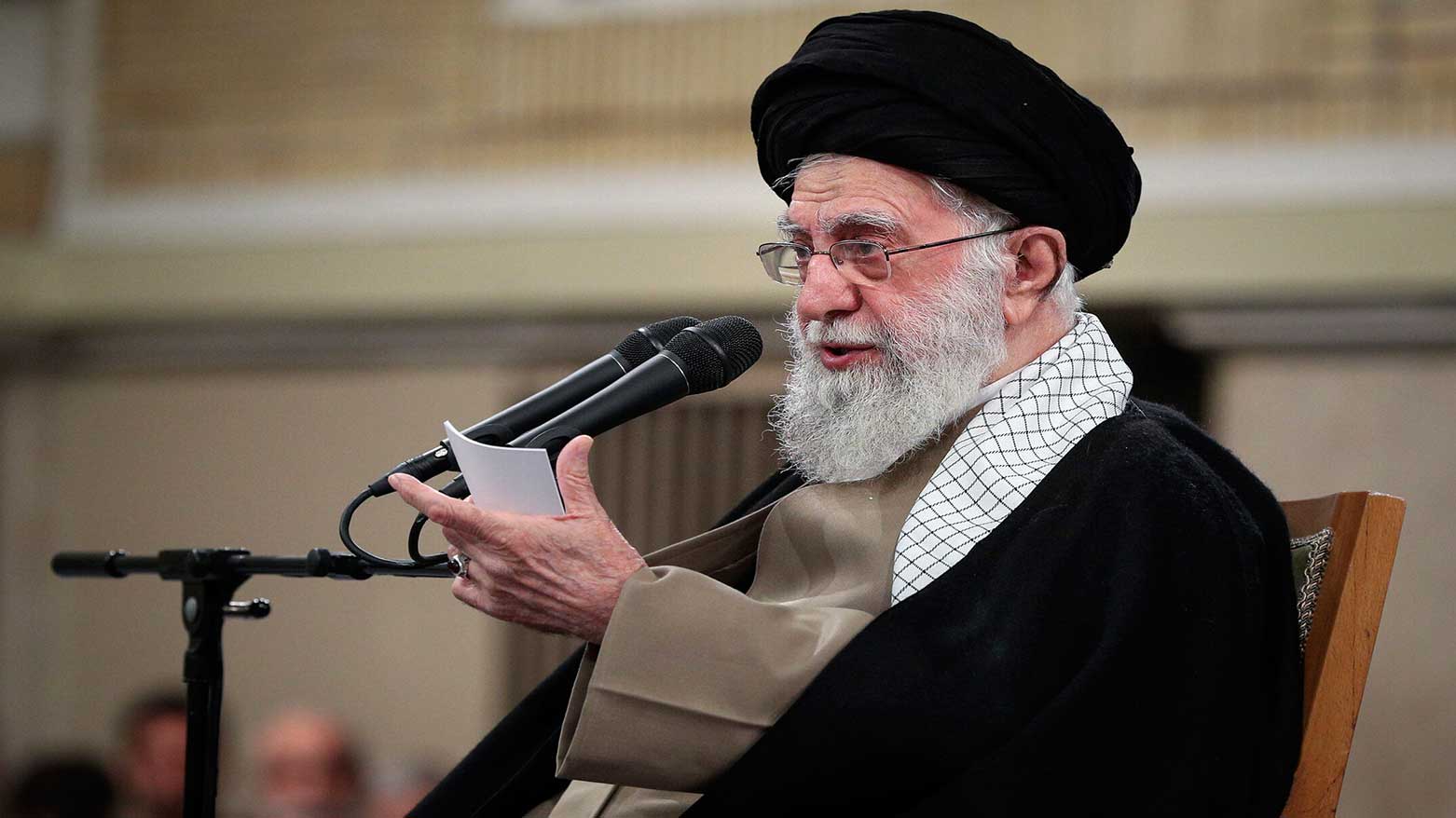Iran Defies Trump’s Overture as Tensions Reach Boiling Point
Khamenei further dismissed U.S. military threats as “irrational,” vowing that Iran is capable of delivering a reciprocal blow should hostilities escalate.

ERBIL (Kurdistan24) - Iran’s Supreme Leader Ayatollah Ali Khamenei has categorically rejected U.S. President Donald Trump’s proposal for nuclear negotiations, dismissing it as a deceptive ploy to manipulate global public opinion.
His remarks, reported by Reuters and the Islamic Republic News Agency (IRNA), highlight the deepening hostility between Washington and Tehran as the Islamic Republic accelerates uranium enrichment to near-weapons-grade levels.
Khamenei’s Rejection and Trump’s Letter
Speaking in Tehran on Wednesday, Khamenei derided Trump’s diplomatic outreach, calling the U.S. a “bullying government” and asserting that negotiations with such an actor would be futile. According to the Associated Press (AP), the Supreme Leader made it clear that Tehran would not engage in talks with a nation that has repeatedly violated agreements.
Trump, who recently began his second term in office, had acknowledged sending a letter to Khamenei, urging negotiations while warning that Iran faces two choices: diplomacy or military confrontation.
This is not the first time Trump has attempted to engage Iran’s leadership. A similar effort in 2019, through then-Japanese Prime Minister Shinzo Abe, was met with public mockery from Khamenei, as footage of Abe slipping Trump’s letter under his leg went viral in Iranian media.
A Surprise Visit and Diplomatic Maneuvers
Adding to the intrigue, an Emirati official, Anwar Gargash, met with Iranian Foreign Minister Abbas Araghchi in Tehran on Wednesday. Iranian state television previously suggested that Gargash carried Trump’s letter, but no letter was shown in the footage before the meeting. The UAE has remained silent on the visit, raising speculation about its role as a mediator between Washington and Tehran.
The Shadow of Military Escalation
Khamenei did not shy away from issuing a warning. “If we wanted to build a nuclear weapon, America couldn’t stop us,” he said, as reported by IRNA. He further dismissed U.S. military threats as “irrational,” vowing that Iran is capable of delivering a reciprocal blow should hostilities escalate. This defiant rhetoric comes as Iran enriches uranium at 60% purity—just short of the weapons-grade threshold of 90%. The latest report from the U.N.’s nuclear watchdog confirms that Iran has significantly advanced its nuclear program, heightening fears of a direct military conflict.
Israel, which has repeatedly vowed to prevent Iran from obtaining nuclear weapons, has already engaged in direct strikes against Iranian targets. In response, Iran and its allied groups, part of the so-called “Axis of Resistance,” have intensified their attacks against Israel and U.S. interests in the region.
Economic and Internal Pressures on Iran
Beyond external threats, Iran faces severe internal strife. The economy remains battered by U.S. sanctions, inflation, and the devaluation of its currency, the rial. Protests persist, particularly from women defying the compulsory hijab law—two years after the death of Mahsa Amini ignited nationwide demonstrations.
Despite these challenges, Khamenei remains defiant, asserting that Iran continues to grow stronger. “Unlike the previous year, we have strengths and capabilities in various aspects,” he claimed, countering narratives of a weakening theocracy.
The Crossroads: Diplomacy or Military Action?
With Iran refusing to engage in negotiations and continuing its nuclear escalation, Washington and Jerusalem face a difficult decision. The U.S. has made it clear that diplomacy is preferable, but Iran’s actions are leaving little room for peaceful resolution.
If Tehran continues on its current path, the risk of military confrontation increases. Both the U.S. and Israel have made it clear that they will not allow Iran to develop nuclear weapons, and should diplomacy fail, military intervention may become the only option.
The world watches as tensions reach a boiling point: Will Iran choose diplomacy, or will its defiance lead to targeted strikes on its nuclear sites—risking a broader conflict if Tehran retaliates?